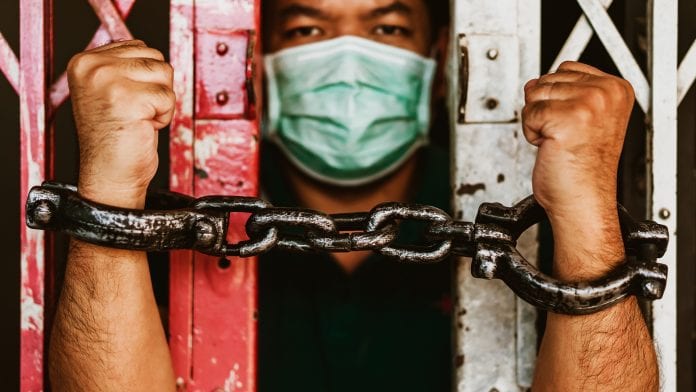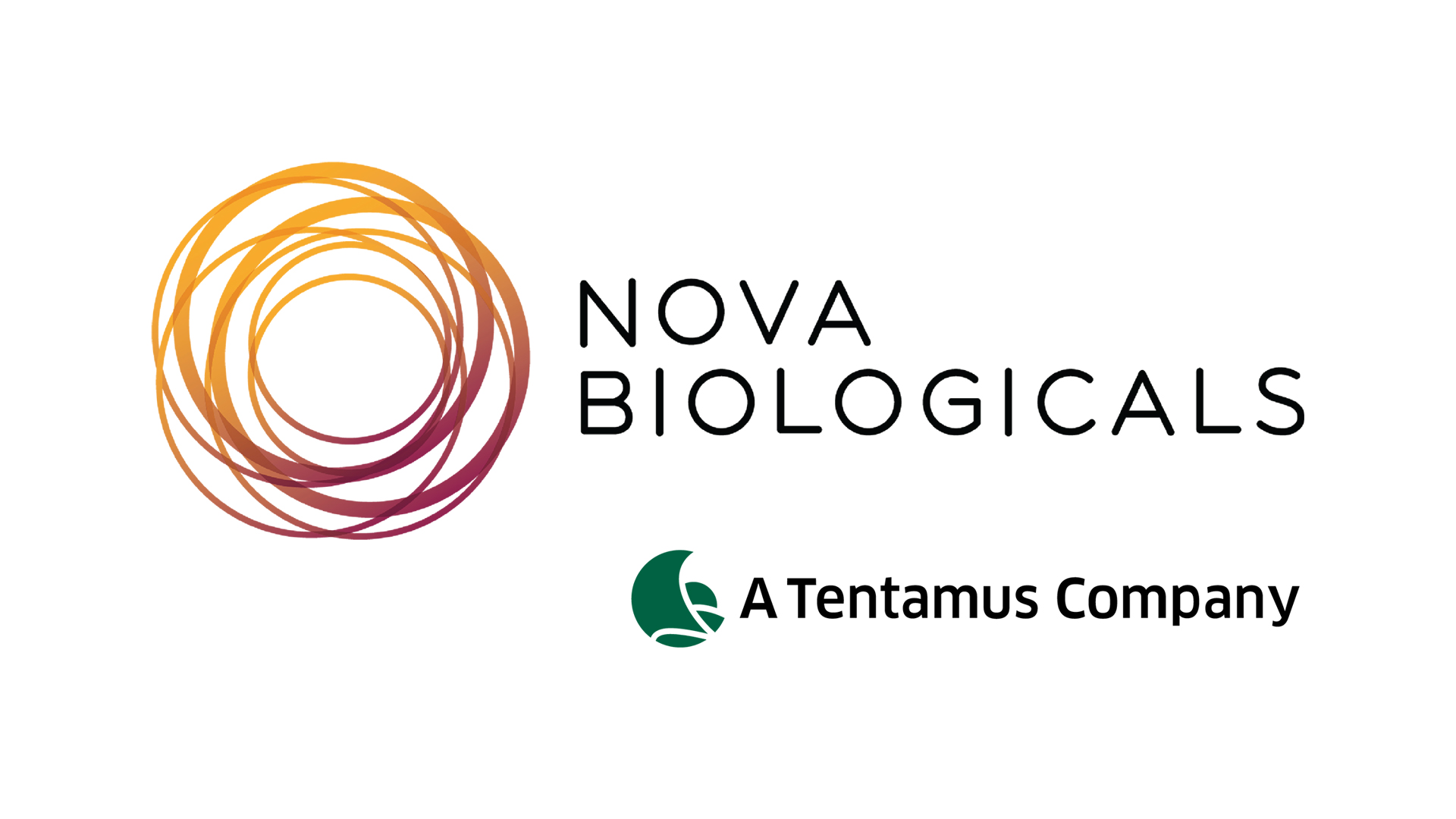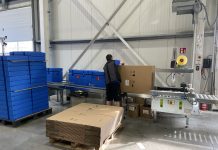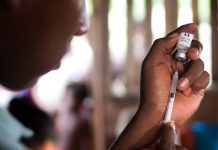
Nova Biologicals discusses the benefits of enlisting the help of microbiological laboratories in prisons during the COVID-19 crisis.
Since the COVID-19 pandemic began in the spring of 2020, society everywhere has been struggling to combat the spreading virus. Due to several factors, such as the easily transmittable nature of the virus and its ability to survive for extended periods of time on surfaces and through airborne water droplets, containing the outbreak of SARS CoV2 has been a challenge.
Efforts such as encouraging social distancing, enforcing quarantines and curfews, and sanitising surfaces and equipment much more frequently have been employed. In terms of how infectious the virus can be, there have been over one hundred million cases reported worldwide. According to the website of the World Health Organization (WHO), there have been more than two million reports of COVID-19 related deaths so far and that number is sure to grow as time goes on. Because of this, schools, churches, businesses, and public settings have been affected, as have the private home lives of many around the world. However, no setting is more detrimentally affected than that of prisons and other detention centres.
Due to the high number of people detained in close proximity within these areas, it has proven to be a challenge for countries everywhere to manage and respond efficiently to the growing threat of this pandemic. Even early on, some prisons in countries like Germany, the United Kingdom, France, and Italy have considered and enacted various housing alternatives for the inmates in their care. Some have gone so far as to allow certain inmates to be released as early as two years in advance, while others have instead opted for a home detention system in which inmates can remain in external housing for the duration of the pandemic.
Prisoners safety during COVID-19
The European Prison Observatory (EPO), a project created by various organisations throughout Europe, uses quantitative and qualitative information to monitor the state of European prison systems and alternative detention centres, noted that as early as March 2020, several countries had already enacted such plans.
According to an article1 written by The EPO documenting the various strategies adopted by several countries to manage prisons, Albania, France, Germany, Poland, and The United Kingdom, among several other countries, have already released or lowered the sentence of prisoners to accommodate the need for more room for quarantine and alleviate overcrowding. Yet, even with these measures in place, prisons everywhere are reeling from the effects the pandemic has had on their normal functions.
Several prisons have had to quarantine inmates despite not having enough room to adequately provide for them, while others have had to suspend basic visitation privileges amongst inmates. Most have adopted harsher sanitation practices and enforce social distancing as much as possible for both prison staff and inmates. While these are potentially successful in lowering infection rates, there has been a reported increase in mental health issues amongst staff and inmates alike due to the more stringent regulations. Given that prisons tend to have much higher rates of mental health illnesses among inmates, the repercussions of what is effectively cutting these prisoners off from the outside world and enforcing a sense of isolation among them cannot be underestimated.
Information published on the WHO regional office for Europe website estimates that “prevalence studies in many countries show that 10–15% of the prison population suffer from severe and enduring mental illnesses, such as such as schizophrenia, bipolar disorder and autism disorders,” (World Health Organization Regional Office for Europe, 2020).
As time goes on and expected end dates to the pandemic are continuously pushed back, the question must be asked as to how long these initiatives can be continued knowing the detrimental effects on the mental health of staff and inmates while still unable to completely stop the spread of the coronavirus.
This matter is made more dire when faced with the fact that several countries are still struggling to maintain a reliable supply chain for supplies like sterile gloves, facemasks, needles, and other basics items. This has only been compounded by competing public demand among civilians for the same supplies for their own use. For custodial workers and other sanitation departments, having access to effective disinfectants and knowing which products work to efficiently eliminate the coronavirus is equally important. Even though COVID-19 vaccines are currently underway, the need for sanitation amongst workers and inmates is pivotal to preventing the spread of the virus. The lack of readily available supplies fuels the need for harsher rules regarding prisoner activities and visitations. The need for healthcare workers to care for infected inmates or administer vaccines as they are made available will further strain available resources.
An article posted to the European Public Service Union website in April 2020 over the state of prisons noted the following:
“The lack of resources, protective equipment and testing in prisons led many if not most governments to ban or limit family, friends or lawyers’ visits, social activities, work or training. This makes the prison environment extremely tense, with direct consequences for inmates’ physical and mental health as well as for prison workers and their families.” (European Public Service Union, paras. 5)
The value of microbiological labs
Without more reliable resources, mental health issues amongst both inmates and workers can only rise as they are forced to deal with more necessary restrictions to their personal lives and environment.
When faced with these issues, when faced with the growing reality that people are struggling to manage these institutions under the weight of this pandemic, the question of how to continue to address these complications becomes much more apparent. With that in mind, the value of microbiological labs cannot be ignored.
By working with independent laboratories, specifically environmental labs such as Nova Biologicals or a lab in the Tentamus group, prisons can have access to resources they would otherwise struggle to obtain. This includes but is not limited to COVID-19 testing, air and water analysis, surface analysis (specifically in reference to contaminated surfaces), and sterilisation testing. These cannot make the problems caused by the COVID-19 pandemic disappear, but they can offer specific solutions that can alleviate the strain being placed on workers and the institutions themselves.
To start, the testing of air, water and surface areas allows for the ability to track the virus concentration in the facility. This would allow for more effective quarantine of inmates and, when combined with testing for COVID-19 infection, would also reduce the strain on healthcare workers and prison staff alike in handling those who are presumed positive. This could be extended to the tracking ability to pinpoint the virus entering from outside the prison. Not only that, but maintaining a sterile workplace and ensuring testing for inmates and visitors could allow for visitation rights to be resumed under controlled circumstances. Just as many hospitals have enacted a mandatory self-quarantine and negative COVID-19 test results before arriving for an appointment, prisons could follow suit and offer testing with mandatory quarantine for potential visitors and the corresponding inmates.
This could help combat the mental stress being put on inmates by the isolation the pandemic is causing, and could further work to allow more transparency for the public into the safety measures being taken by prisons – something several prisons have been criticised over these past several months. This is only scratching the surface of the possible benefits gained from enlisting the help of microbiological labs in these circumstances.
Disinfectants against COVID-19
Other benefits of enlisted the help of a microbiological lab are the services for testing the effectiveness of disinfectants against COVID-19, the ability to more effectively sanitise equipment and common areas, and the ability to track what other kinds of bacteria and viruses could be afflicting inmates beyond coronavirus.
With healthcare and prison staff already pushed to the breaking point, seeking alternative options allows for more accessibility to necessary resources and services. While certain new regulations and possible vaccines are being implemented, it is vital to remember that the pandemic is far from over and that the coronavirus will not simply cease to exist once vaccines are readily available. Until effective and regular treatment is open to the public and infection numbers are at a minimal level, the response to the multitude of complications involved in managing an effective response is pivotal to overcoming this pandemic and returning to a sense of normalcy. In the meantime, it is important to make use of what resources are available to assist in overseeing prison systems worldwide.
As one article put it:
“Measures have been, and should continue to be, implemented to reduce disease transmission within prisons; however, these measures are not cost free and their consequences to mental health should be decreased wherever possible. The effects of the pandemic are considerable, but they also create opportunities for new, innovative methods of supporting prisoners and for strengthening links between health care, criminal justice, and government agencies, with potential long-lasting benefits.” (Hewson, 2020, p. 570)
Microbiological laboratory employee efforts, much like the efforts of healthcare workers, can alleviate stress on everyone involved and aid in better understanding and tracking this deadly outbreak. With time, their work may prove key to returning to a sense of normalcy during these challenging circumstances.
References
- World Health Organization. (2021, February 10) WHO Coronavirus Disease (COVID-19) Dashboard. World Health Organization. https://covid19.who.int/
- World Health Organization Regional Office for Europe. (n.d.) Prisons and Health Data and statistics. World Health Organization Regional Office for Europe. https://www.euro.who.int/en/health-topics/health-determinants/prisons-and-health/data-and-statistics
- European Prison Observatory. (n.d.) Covid-19: What is happening in European Prisons?. European Prison Observatory. http://www.prisonobservatory.org/
- European Public Service Union. (2020, April 15) Fighting Covid-19 in prisons and detention centres in Europe: Protected prison workers – protected inmates. European Public Service union. https://www.epsu.org/article/fighting-covid19-prisons-and-detention-centres-europe-protected-prison-workers-protected
- Hewson, T., Shepard, S., Hard, J., Shaw, J. (2020) Effects of the COVID-19 pandemic on the mental health of prisoners. The Lancer, 7 (7), 568-570. https://doi.org/10.1016/S2215-0366(20)30241-8







